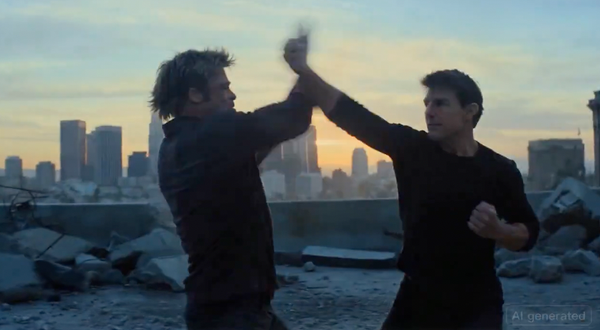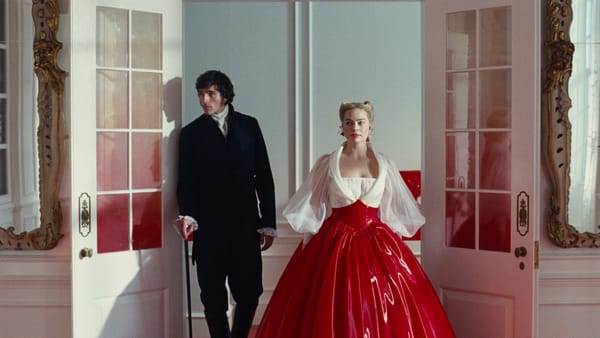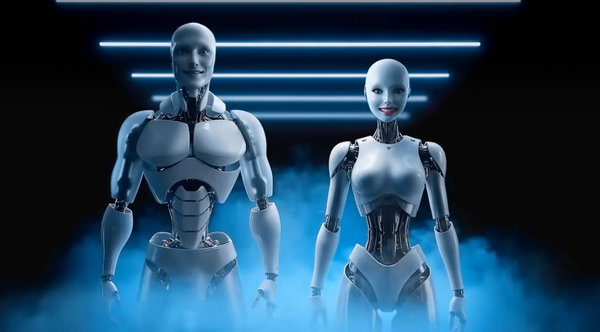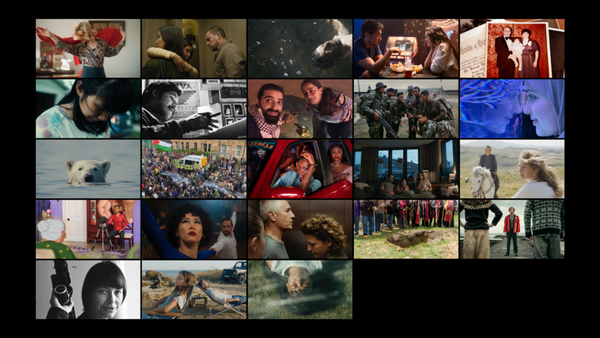The Most Pro-Immigrant Blockbuster in Years Is...'Venom: The Last Dance'?
The superhero threequel is a mess, but it has some worthwhile subtext.
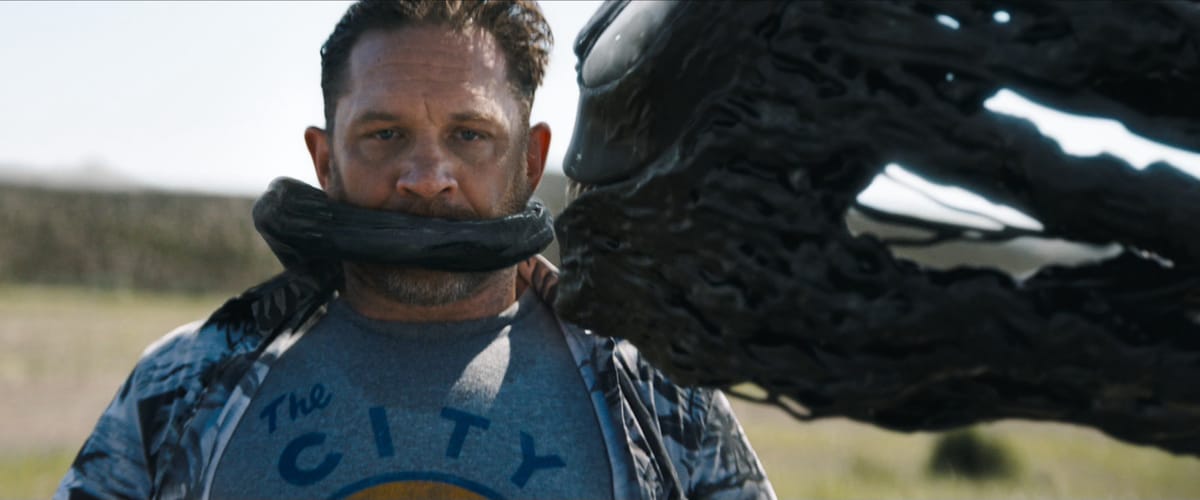
As someone who didn’t care for the Venom character in the comics or his 2018 movie, I’m surprised how much the teethy alien goo has grown on me. I wouldn’t say I’m ride-or-die for Venom now, but I will say that the franchise has carved out a weird niche by building on Tom Hardy’s distinctive performance. For a series that could have been another bit of forgettable superhero dross from Sony’s attempts to make Spider-Man movies without Spider-Man (Morbius, Madame Web), there’s something charming in how goofy this series is, with Hardy talking to himself/a fearsome alien who’s also a total dork.
Sony, after seeing the box office drop-off not only from Venom to Venom: Let There Be Carnage but also the decline in superhero movies in general (prayers up for December’s Kraven the Hunter), decided to wrap things up for the “Lethal Protector” with Venom: The Last Dance. While other superhero trilogies try to go massive with their third entry (e.g., Spider-Man: No Way Home, The Dark Knight Rises), The Last Dance feels like Sony gave the series’ two core creatives—Hardy and writer Kelly Marcel, who steps into the director’s chair for this outing—license to go wild. There’s nothing riding on The Last Dance, and after deploying Carnage in the last movie, there’s not a bigger bad to fight that audiences would know of. This leads to a bizarre road trip movie/fugitive film where Eddie and Venom are on the run from giant space bugs working on behalf of Knull (Andy Serkis), who wants to destroy the universe because he’s eeeeevil.
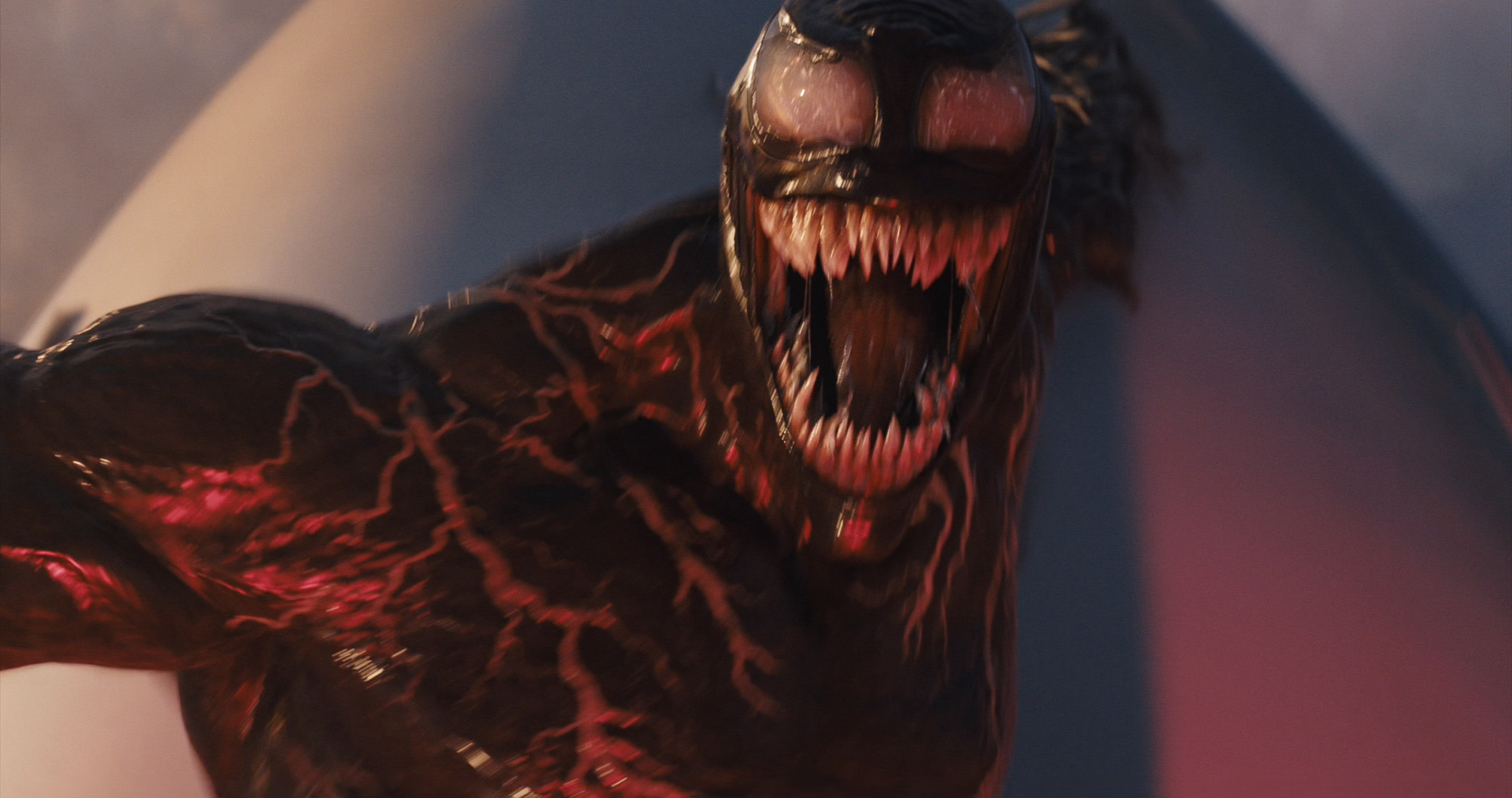
But beneath this weird movie that has scenes of Eddie getting peed on, hitching a ride with a new age-y family, and dancing to ABBA with Ms. Chen (Peggy Lu) in a Vegas penthouse interspersed with a secretive military science project to collect all the symbiotes, there’s a surprisingly vigorous defense of immigrants with a critical look towards those who see refugees as invaders. Considering that far too many superhero movies refuse to touch anything resembling real-world politics, it’s courageous and admirable that Hardy and Marcel decided to take what will likely be their last Venom and say that refugees are our allies, not our enemies.
To understand this dynamic, we have to back up a bit into the reconstruction of Venom lore, where Venom is one of a handful of symbiotes who imprisoned Knull, a bad guy, and fled their home world. All symbiotes except Venom have been captured by the Area 55 project led by scientist Dr. Payne (Juno Temple) and officer Rex Strickland (Chiwetel Ejiofor). Payne sees the symbiotes as nonthreatening organisms, while Strickland sees them as invaders who want to take over the Earth. And to be fair to ‘ol Rex, the symbiotes are incredibly powerful organisms which, if they’re anything like Venom, can take over a host’s body and also like to bite off people’s heads.
But The Last Dance largely discards anything inconvenient in its lore (remember in the first movie where Riot planned to bring all the symbiotes to Earth and had to be stopped?), and these movies carry such a chaotic energy that I honestly don’t mind. I’m even a little grateful that The Last Dance doesn’t ask me to remember the finer plot points of the previous movies. Instead, we get this weird trip where Eddie/Venom sets out to New York City to clear Eddie’s name, they get sidetracked into a different adventure, and it’s all about how the symbiotes are good, actually.
Nothing about this is clean or tidy, but I like that Venom: The Last Dance at least makes an effort to have a distinct personality with something to say about current affairs. The movie isn’t subtle in its admiration for refugee and immigrant populations. Venom comments multiple times how much he’d like to see the Statue of Liberty when they reach New York City, a symbol of not only freedom but of a sight that welcomed immigrants to America as they reached Ellis Island. And what do these symbiotes do? They make their hosts—Americans—stronger. Again, not subtle.
That doesn’t necessarily excuse the rest of the movie, which loses all its energy when Eddie and Venom aren’t on screen. I honestly feel a little bad for Temple and Ejiofor, who are talented actors tasked with nothing more than delivering bits of exposition and plot gristle to get us from scene to scene. There’s also the general clumsiness of set-up and payoff, like in the first act, where we see a giant station at Area 51 used for dissolving things with acid. Gosh, wonder if that might come back at some point. There’s nothing tidy about the storytelling, and yet that rambunctious, awkward approach oddly fits with the boisterous energy of Venom as a character. If Spider-Man (who, through three movies, is never mentioned) swings gracefully through the air, Venom smashes everything to get to where he’s going.
When the superhero era is packed away and the field winnows back down to a few major franchises, the Venom trilogy will be this oddball set of features that ended up being far more endearing than expected. None of them qualify as great movies, but they’re also not playing it safe to score a quick payday and get out before the bubble bursts. That makes Venom: The Last Dance a fitting conclusion to a superhero trilogy that shouldn’t have worked but ended up making a far better case for itself than being the spawn of Spider-Man without Spider-Man.
Matt Goldberg is a film critic and commentator. If you enjoyed this review, check out Matt’s newsletter, .
Stuff David Chen Has Made
- Over on Decoding TV, we discussed this week’s Agatha All Along, which is possibly one of the best episodes of genre TV this year, if not ever(??). Listen here.
- On The Filmcast, we reviewed Timo Tjahjanto’s latest action extravaganza, The Shadow Strays.
- [PAID ONLY] On my personal Patreon, we’re continuing to document what it’s like to be on the front lines of this US Presidential election. Listen here.
